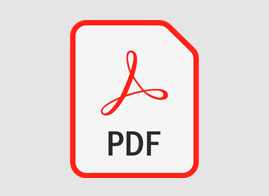Introduction
Across the UK, many parents use alcohol, drugs and/or other substances recreationally. For many, whilst there may be periods of binge use, the overall impact on their daily functioning is likely to be minimal as will be the impact on children and young people in their household.
For a proportion of children and young people, their parents or carers are dependent on drugs alcohol and/or other substances. The misuse of these substances can dictate the way the family functions, and parents may struggle to recognise and meet the needs of their children.
Need more?
Thank you for visiting our resources pages. These are free to everyone as is our fortnightly safeguarding bulletin – general safeguarding information is too important to restrict. Become a member to access lots more, including training materials for you to deliver in-house on each topic in Keeping Children Safe in Education.
Sign up for FREE fortnightly bulletin.
What about training?
We can deliver training for your setting on this and other subjects via online platforms, or face-to-face in certain areas. Just get in touch to discuss your requirements.
When parents use illegal substances, there may be an impact on the family from dealers, criminal gangs and police involvement. Children and young people’s views about alcohol, drugs and their use will be influenced by the values and life experiences of the adults in their household.
Children living with parents or carers experiencing substance addiction may experience physical and/or emotional abuse and neglect. However, substance misuse is often hidden and not discussed, which makes it difficult for those outside the family to spot the signs and offer support.
Definition of parental substance misuse
When a parent’s or carer’s substance use becomes harmful and prevents them from providing safe care for their children.
Adapted from the NSPCC
Substance use becomes harmful when continued use puts users or others at risk of harm both physical and psychological. Individuals become dependent when they crave substances and continue to use them even if it harms themselves or others.
According to the NSPCC, more than 70,000 children in England have a parent struggling with alcohol misuse. In 2022/23, Childline received an average of six contacts a day where parent or adult alcohol or substance abuse was mentioned concerning neglect.
Additional vulnerabilites
Any child is at risk of abuse and neglect resulting from parental substance misuse, but some families experiencing multiple difficulties are more vulnerable.
As we know, children with special educational needs and/or disabilities (SEND) are particularly vulnerable to all forms of abuse and neglect. Children with SEND living in a home with a parent with substance misuse issues are at increased risk of abuse and neglect.
Families in which one or both parents/carers misuse substances are at increased risk of domestic abuse resulting from substance misuse. In other families, adults experiencing domestic abuse may go on to develop substance misuse problems.
Similarly, parents/carers who misuse substances may go on to develop mental health problems, or those with mental health problems may be at increased risk of misusing substances.
Families in which a parent/carer has learning difficulties may be at increased risk of developing substance misuse issues.
Families in which parental substance misuse, domestic abuse and mental health issues are all present are at higher risk.
Effects of parental substance misuse
During pregnancy, drinking and drug use can put unborn babies at risk of birth defects, premature birth, being born underweight and developing withdrawal symptoms.
Babies and young children are at increased risk due to their dependency on their carers to meet their needs. Furthermore, those with additional care needs such as low birth weight, disability or the impact of maternal substance use whilst pregnant are at increased risk of ongoing harm.
Adolescents who have been living in homes alongside parental substance misuse may start to display behaviours or mental health problems due to long-term exposure. They may also engage in concerning behaviours such as using substances themselves.
Children may have to take on additional caring responsibilities in the home due to their parents’ substance misuse, including caring for the parent and/or siblings.
Children and young people living in homes where there is parental substance misuse can experience:
- abuse or neglect;
- issues with their development;
- psychological harm;
- exposure to criminal activity;
- poor school attendance and poor attainment when in school;
- risks to physical and mental health (including substance ingestion).
My mum is up and down – sometimes she’s fine and sober but it can quickly change and she becomes worse again… [She] gets abusive when she’s drunk and gets angry at me and my sisters. I don’t like being at home.
Spot the signs
As with all forms of abuse, there are indicators and they are very similar to indicators of other forms of abuse.
Although not an exhaustive list, they include:
- low school attendance/lateness/poor educational performance;
- talk of caring for parents or siblings;
- angry, destructive or concerning behaviours;
- anxious behaviours;
- poor physical presentation;
- intoxicated parents;
- substance misuse by the child.
What to do
As with any form of abuse, if you have concerns, speak to your Designated Safeguarding Lead.
- Check young people have safe relationships – in their family, with their peers and with your staff. Create a culture where it’s okay to talk, even about the most difficult things.
- Know the signs and know what to do – use the checklists above, your safeguarding procedures and be confident to raise parental substance misuse as a possibility.
- Keep a chronology – parental substance misuse may not be apparent from one event but an accumulation of several different concerns and observations. These must be noted at the time to allow the building of a bigger picture of the experiences of the child or young person.
- Multi-agency working – while your primary concern will remain the child's safety, your setting may need to work closely with other agencies to ensure the child and their family are getting the support they need.
- Promote safeguarding - The NSPCC has identified several factors which reduce the impact of parental substance misuse on children:
- the child being able to ask for help;
- parents being willing to acknowledge their difficulties and seek help and support;
- positive relationships between the parent and child;
- social support being available to the family;
- the parent and child having good general physical and mental health;
- having one parent who does not misuse substances;
- being able to maintain daily routines.
- Take action – and keep taking action until you know children and young people are safe.
Free parental substance misuse poster
This free, downloadable resource raises the profile of safeguarding for your staff team. For use in staff rooms, on safeguarding boards or on the back of toilet doors, the poster includes tips, a space for local contact details, plus a link and QR codes to this resource page. Download the poster from the resources below.
DSL Training Materials
-

Parental Substance Misuse Presentation
-

Parental Drug and Alcohol Misuse - Presenter Notes
-

Handout for staff - Parental Substance Misuse
-

Parental Substance Misuse Quiz
-

Parental Substance Misuse – Quiz (Answer Sheet)
-

Parental Substance Misuse Scenario – Early Years Settings
-

Parental Substance Misuse Scenario – Early Years settings – DSL Information Sheet
-

Parental Substance Misuse Scenario – Primary Schools
-

Parental Substance Misuse Scenario – Primary Schools – DSL Information Sheet
-

Parental Substance Misuse Scenario – Secondary Schools
-

Parental Substance Misuse Scenario – Secondary Schools – DSL Information Sheet
-

Parental Substance Misuse Scenario – 16+ settings
-

Parental Substance Misuse Scenario – 16+ settings – DSL Information Sheet
-

Parental Substance Misuse Scenario – SEND Settings
-

Parental Substance Misuse Scenario – SEND Settings – DSL Information Sheet
-

Parental Substance Misuse Scenario – Care Settings
-

Parental Substance Misuse Scenario – Care settings – DSL Information Sheet
Resources
-

Parent Substance Misuse Poster
-

Parents with alcohol and drug problems: adult treatment and children and family services
-

Parenting with an addiction
-

Children of addicted parents
-

Teacher training: drugs, alcohol and tobacco
-

Frank
-

Know the Score
-

Drinkaware
-

List of most commonly encountered drugs currently controlled under the misuse of drugs legislation
Save time and improve your safeguarding approach…
Bite-size training materials to share with your staff every month.
Support to explore and develop your safeguarding culture.
A huge array of resources and professional experience at your fingertips.
Get in touch now for a personal tour of the site and details of membership benefits.
We look forward to working with you.


